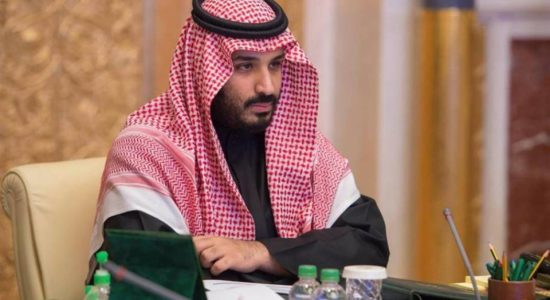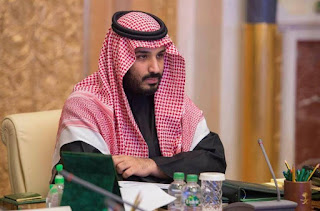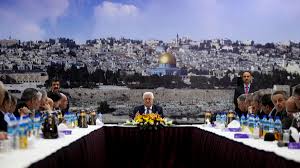
Since the Astana negotiations the crisis in Syria has been on the path towards resolution. We have seen multiple factors working towards this resolution including the shift in Turkey’s position, the Russo-Turkish alliance and more recently the Gulf crisis and the rising Qatari-Saudi hostilities.
As the Qataris have positioned against Saudi Arabia, armed groups in Syria have lost financial and logistical support and as the Qatari Iranian rapprochement has developed, Syria and its allies have strengthened as Iran, Russia and Hezbollah have been draining the resistance in many areas across Syria.
As a major neighbor, Jordan has also begun to reposition as a result of these shifts. Stability in the south of Syria is a primary objective due to the direct link to stability and national security within Jordanian borders. In addition to security, from an economic and political perspective the stabilization and reopening of the border with Syria is a critical step in normalizing and rebuilding the Syrian state.
In parallel and of equal strategic importance for Jordan are efforts to reengage with Iraq and reopen that border. Broader regional developments have created new challenges on this front. Stability and security remains fragile, as does Jordan’s ability to build strong political ties. Additionally, the potential for renewed relations for Iraq with Saudi Arabia and the possibility of new border openings between them will be distracting and a higher priority for Iraq.
Given that regime change is no longer the priority in Syria and all of the key stakeholders have changed their narrative, resolution of the Syria issue and outlining a pathway to bring Syria back into the Arab League should become a priority. Egypt is in the box seat given that since the fall of the Muslim Brotherhood there, Egyptian-Syrian relations have been progressively improving.
While Saudi Arabia led the anti-Syria campaign in the region, they have cause to reconsider their position. They are seeking to disengage from conflict and crisis in Yemen and Syria as Qatar develops the upper hand in Syria and Iran encouraging the wasting of their resources in Yemen.
While Saudi Arabia has been quick to war and capable of building coalitions against shared enemies, the Minister of Defence, who has become the Crown Prince is transitioning to become King, which could very well result in a transition from war to peace.
Saudi Arabia has many great challenges to face in the coming generation and needs development and economic growth in order to face them. So while successfully waging war may have made him Crown Prince, stability and growth is the path to becoming King.
As a result, we may see a regional shift towards peace, social development and economic growth, things the Arab world greatly need.


The roots of the tension between Qatar and other GCC countries go back several years to the Arab Spring. During this time, the GCC countries felt that Qatar was playing an active role in feeding the discontent, and the dispute was resolved with the transition of power of the Emir Hamad bin Khalifa Al Thani to his son Tamim in 2013. As part of this transition, Qatar provided assurances of a shift in the role they played in the region.
The following year, the Gulf countries were not content with the progress and Saudi Arabia, the UAE and Bahrain all withdrew their ambassadors from Doha and called for similar sanctions that have been applied this week, including the cutting of diplomatic ties and closing all land, sea and air borders with the Gulf states.
The events of this week are the culmination of these tensions that have been playing out over the last four years. Qatar is accused of supporting extremism, which they have not made any effort to counter. In fact, Doha has undertaken aggressive media campaigns against Egypt, UAE and Saudi Arabia through the wide network of media outlets that they sponsor.
The issues with Qatar span the Arab world, as the impacts are felt across the region. The main players have tried over several years to promote change in Qatar, to no end. While it may appear reactionary, this process has been playing out for many years, and Qatar has not sufficiently responded to ease the tensions or address the concerns of their Arab neighbors.
This process of isolating Qatar is part of a systematic plan that is likely to attract international support. The move comes immediately following President Trump’s visit to Riyadh where he called for an Islamic coalition to fight terrorism and radicalism.
These developments place much greater pressure on Qatar to shift its policies and actions. The promises of the past are no longer going to be enough, and Qatar will need to provide concrete actions in order to avoid further complications for its relationships within the region and internationally, which will fundamentally impact on its economy.
From a Jordanian prospective, Jordan is fully aware of the current situation and recognize that it is no longer a Gulf conflict, but one that impacts all Arabs. Furthermore, Saudi Arabia, UAE, Bahrain and Egypt are key strategic allies for Jordan, so it was very logic for Jordan to consider a supportive position on this issue.

After many years of distractions and other priorities, Palestinian issues are back on the agenda of some Arab countries. There have been recent confirmations from official source that some Arab countries have been meeting with the Palestinian President in order to press the importance of a united Fatah movement. These reports raise curious questions as to the source and reasons behind the sudden interest from these Arab countries to ensure the unity of Fatah.
During the so-called Arab Spring years, there have been two allied groups competing for influence in order to implement their version of a resolution in Palestine. On one side were Qatar, Hamas and Turkey, while the other saw a coalition of Jordan, Egypt, UAE and Saudi Arabia. The settlement of the Palestinian conflict and its impact on the nature of the Arab peace initiative was the key point of conflict between these two groupings, and it seems that conflict is once again flaring up.
Recently, many observers have reported activity between Jordan, Egypt and Saudi with declared and undeclared visits to coordinate positions between the block and the Palestinian authority. This recent diplomatic activism suggests the issue is reaching a decisive point, with two current matters to address.
The first is the unity of the Fatah movement by ending conflict amongst its members, and the second is to postpone the municipality elections that President Abbas has called for against the wishes of most of his supporters, including those in the Fatah movement.
The delay in these elections is important to the Jordan-Egypt-Saudi block as it is expected that Hamas would have massive wins in the West Bank, which would add to its current power base in Gaza. Meanwhile, a potential Turkey-Israel agreement, which is reportedly being negotiated, could include development and rebuilding of Gaza.
The new Palestinian reality includes Hamas’ strong presence in the West Bank, and after the university elections where Hamas won overwhelmingly, the municipality elections would be the second stage toward the domination of West Bank by Hamas. This also foreshadows the expected positioning from Turkey as an integral player in Palestine pushing out other power brokers in the region, and potentially leading to negative impacts for them from any coming settlement.
The activation of the Quartet on the Middle East and the pressure put on the Palestinian President Abbas can be interpreted as Arab attempts to contain the current Palestinian situation, with increased Turkish influence in Palestine. This is not limited to cooperation with Hamas nor just to Gaza. The West Bank and the custody of holy places is a live issue, especially with the increasingly limited power and influence of Arab countries in Palestine.
As the situation develops, the likelihood of a deeper conflict over the Palestinian issue. Common ground between the two blocks is almost impossible so the conflict can only increase from here and could shift and change along the way.

We use cookies to ensure that we give you the best experience on our website. If you continue to use this site we will assume that you are happy with it.Ok





